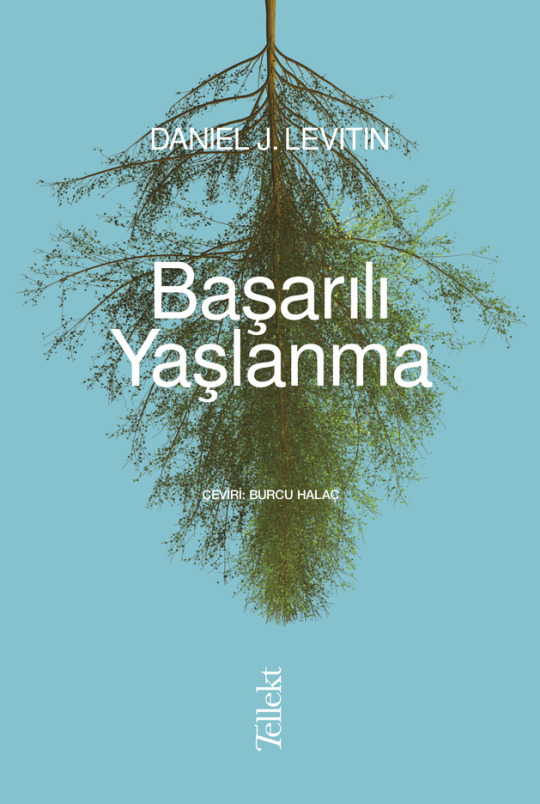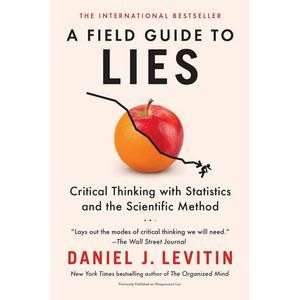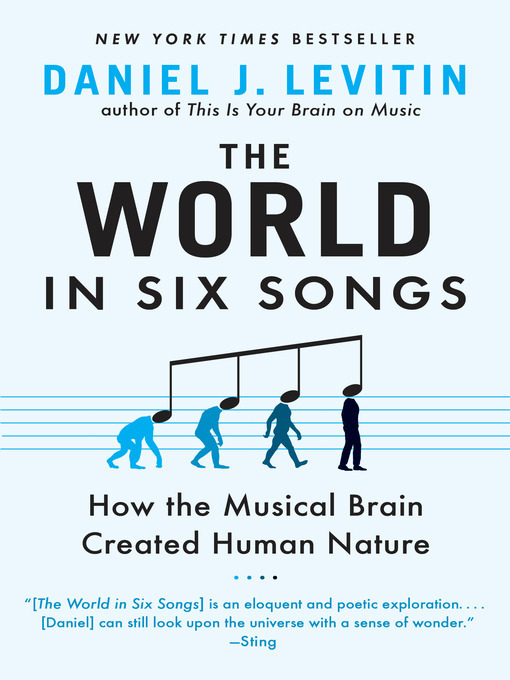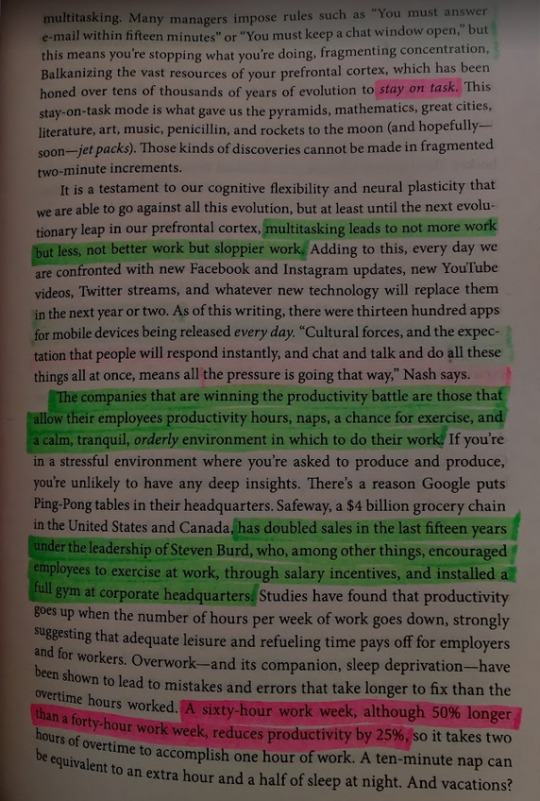#Daniel J. Levitin
Text
New Post has been published on Books by Caroline Miller
New Post has been published on https://www.booksbycarolinemiller.com/musings/happy-90th-gloria/
Happy 90th Gloria!

A writer near my age admitted on Facebook that though she loved the feel of paper between her fingers and the smell of a new book, she’d shifted to an e-reader. No longer comfortable with small print, she needed an electronic device to adjust for size. Much in life is a tradeoff. The earth has a polar wobble, which is natural, but growing more pronounced because humans are pulling quantities of water from the aquifer. Global construction is at an all-time high. That makes sand, a key ingredient in cement, a valuable commodity. The scarcer it becomes, the more illegal mining grows. Today, quarrying sand is a $200 billion to $300 billion industry, making it more valuable than gold, logging, and fishing combined. Developments in technology may ameliorate some of these challenges. Reading devices that adjust print size is an example. Sometimes, though, the remedy poses new problems. Think of all those passwords we need to maintain our internet accounts. A woman In my late 80s, I’d like to see the world slow down. Is there technology for that? In his book, Successful Aging, Daniel J. Levitin warns that clinging to the past isn’t good for human health. Old folks should keep looking forward. That’s easy for him to say. He’s not at the end of the line trying to keep up. On the plus side, Levitin writes that old folks have an edge over the young. Wisdom enables them to make good decisions. They’ve lived long enough to discern patterns in nature and human behavior. A newborn may cry, terrified by its first glimpse of the sun, but adults head for the beach hoping for enough sand to throw down a towel. Lacking experience, young people’s judgments are prone to err. Many, for example, criticize Joe Biden’s slow response to the tragedy unfolding in Gaza. As the head of a powerful country, they presume he has levers to pull to affect change. Yet not since Teddy Roosevelt’s interventions in Latin America during the 1900s has an American President imagined he could interfere with another nation’s sovereignty and escape paying a political price–the incursions being short-lived or ending in failure. The heady era of being a dominant player among weaker countries is history. Today, democratic nations exercise diplomacy rather than brute force. Biden has an edge on that score. He knows the world players, the genesis of foreign quarrels, and the cards each country’s leader is likely to hold. True, he hasn’t sold Benjamin Netanyahu on a two-state solution for Israel and Palestine. But Netanyahu isn’t thinking about the future. An unpopular figure in his country, he clings to power because of the war, holding fast to it the way a man lost at sea clings to an ice float even though it’s melting. Youth may see Biden’s politics in the current conflict as uncaring, but their viewpoint may be too simple. The suffering in Gaza is unconscionable, agreed. But, so far, Biden has kept our alliances intact in the Middle East; held Iran at bay; secured world trade by monitoring the Suez Canal, and made talks about a two-state solution credible. Not bad for a man forced to dance with wolves. In a bad world, only a fool looks for rainbows. Hal Brands in an edition of Foreign Affairs argues that given the current morality, “…the only way to protect a world fit for freedom is to court impure partners and engage in impure acts.” (“The Age of Amorality,” by Hal Brands, Foreign Affairs March/April, pg. 106.) Brands’ advice may be repugnant to young minds and old ones as well, but the difference between youth and age is that the latter is more pragmatic. Older people know that facing reality doesn’t mean giving up ideals. It means they may see taking a step backward as a prelude to moving forward. Nothing I’ve written diminishes the contributions young people make in the world. Innovation flows from their plastic brains the way stars burst from a supernova. I doubt an 80-something could have invented Bitcoin. Because our complex problems require complex responses, neither youth nor age should be banished from the stage. We achieve more when we make room for each other. Gloria Steinem turns 90 this month. After the loss of Roe v. Wade, she hasn’t given up on women’s rights. When a fan asked if she was planning to toss her torch to someone else, her reply was unequivocal. “I’m holding on to my torch. I’ll let other people light theirs from mine.” (Successful Aging, by Daniel J. Levitin, Random House, 2020, (large print edition by Penguin) pg. 662.) Happy Birthday, Gloria!
#Successful Aging#The Age of Immorality#Benjamin Netanyahu#Daniel J. Levitin#e-readers v books#earth's polar wobble#Gloria Steinem#Hal Brands#illegal sand mining#Joe Biden#politics in Middle East#Teddy Roosevelt#youth criticises Biden's Gaza response
0 notes
Text

An excellent book. Learn about the neurological events that are going on in your head when you listen to your favorite tunes and find out how they probably became your favorite tunes in the first place.
#princelysome#2023#books i've read#kindle#ohio digital library#daniel j. levitin#this is your brain on music
1 note
·
View note
Text
Daniel J. Levitin – Başarılı Yaşlanma (2023)
Bazı insanlar diğerlerinden daha iyi yaşlanır.
Bunun nedeni genetik, kişilik, sosyoekonomik durum ya da salt şans mıydı?
Beyinde bu değişimlere yol açan neler yaşanıyor?
Yaşlanmaya eşlik eden bilişsel ve fiziksel yavaşlamayı engellemek için neler yapabiliriz?
Pek çok insan seksenli ve doksanlı yaşlarına iyi bir şekilde gelirken, diğerleriyse yaşamdan elini ayağını çekmiş, kendi zafiyetlerinin…

View On WordPress
0 notes
Text
Just because someone quotes you a statistic or shows you a graph, it doesn’t mean it’s relevant to the point they’re trying to make. It’s the job of all of us to make sure we get the information that matters, and to ignore the information that doesn’t.
Daniel J. Levitin, A Field Guide to Lies: Critical Thinking in the Information Age
93 notes
·
View notes
Text
(\ (\
(„• ֊ •„)
━O━O━━━━━━━━━
・:。Lista de livros que quero ler 「 ✿ 」・:三
━━━━━━━━━━━━━
A divina comédia - Inferno, Purgatório, Paraíso (Dante)
Coleção diário de um banana 3+
O poder do hábito (Charles Duhigg)
Teorias da aprendizagem (Marco Antonio Moreira)
O morro dos ventos uivantes (Emilly Bronte)
Ética (Spinoza)
Treino de matemática para crianças com TEA (Claudia, Alisson e Telma)
Neurociência da mente do comportamento (Roberto Lent)
Neurociência e reabilitação terapia ocupacional (Noomi Katz)
Neurociência e educação como o cérebro aprende (Ramon e Leonor)
Juju vai viajar… O ciclo da água
Atividades e Brincadeiras
A última formiga (Jane Prado)
Professora sim, tia não (Paulo Freire)
A propriedade (José de Alencar)
Sonhos D'Ouro (José de Alencar)
Papéis avulsos (Machado de Assis)
Eu sou o número quatro (Pittacus Lore )
Ubirajara (José de Alencar)
Rápido e devagar duas formas (Daniel Kahneman)
Pedagogia da esperança (Paulo Freire)
Os segredos da mente milionária (T. Harv Eker)
Série Ramsens 1 - O filho da luz vol. 01 (Christian Jacq)
Pai contra Mãe (Machado de Assis)
A pata da gazela (José de Alencar)
Depois da escuridão (Sidney Sheldon)
O Caso Tutankhamon (Christian Jacq)
O Mulato (Aluíso de Azevedo)
Casa de Pensão (Aluíso de Azevedo)
A chave do tamanho (Monteiro Lobato)
História da Meia-noite (Machado de Assis)
Esaú e Jacó (Machado de Assis)
A Condessa Vésper (Aluíso de Azevedo)
Dicionário Etimológico da Mitologia Grega
Deus, um delírio (Richard Dawkins)
Senhora (José de Alencar)
Clara dos Anjos (Lima Barreto)
Memórias Póstumas de Brás Cubas (Machado de Assis)
Marquês de Rabicó (Monteiro Lobato)
O homem que sabia javanês (Lima Barreto)
Antologia Grega: a Musa dos rapazes (JESUS, Carlos A. Martins)
Caçadas de Pedrinho (Monteiro Lobato)
O espelho (Machado de Assis)
Diário Intimo (Lima Barreto)
Mídias sociais
Emília no País da Gramática (Monteiro Lobato)
A importância do ato de ler (Paulo Freire)
O velho senado (Machado de Assis)
Pequeno livro dos Deuses Olímpicos (Paulina T. Nólibos)
Jeca Tatuzinho (Monteiro Lobato)
O enfermeiro (Machado de Assis)
Cronos, Zeus e outros que tais... (Projeto com vários alunos AEGP)
Mitos Gregos (Paulo Sérgio de Vasconcelhos)
Várias histórias (Machado de Assis)
O Príncipe (Maquiavel)
Contos e Lendas da Mitologia Grega (Claude Pouzadoux)
FREAKONOMICS O lado oculto e inesperado de tudo que nos afeta (Malcom Gladwell)
O caso da vara (Machado de Assis)
Os Bruzundangas (Lima Barreto)
Contos Fluminenses (Machado de Assis)
A carteira (Machado de Assis)
Relíquias de casa velha (Machado de Assis)
O gaúcho (José de Alencar)
O garatuja (José de Alencar)
Mascates (José de Alencar)
Extensão ou Comunicação (Paulo Freire)
Labirinto (Kate Mosse)
As aventuras secretas de um Gay discreto
Ocidentais (Machado de Assis)
A lógica do consumo (Martin Lindstrom)
Romances e Contos completos (Machado de Assis)
O ratinho, o gato e o galo (Monteiro Lobato)
Contos de Lima Barreto (Lima Barreto)
O eu profundo e os outros eus (Fernando Pessoa)
Sertanejo (José de Alencar)
Uns braços (Machado de Assis)
Mente organizada (Daniel J. Levitin)
Teoria do medalhão (Machado de Assis)
História sem data (Machado de Assis)
A Arte da Procrastinação (Jhon Perry)
Quincas Borba (Machado de Assis)
Hércules Furioso: a eplepsia na tragédia grega (Paloma da Silva BRITO)
O Saci (Monteiro Lobato)
Cinco minutos (José de Alencar)
Política e Educação (Paulo Freire)
A viuvinha (José de Alencar)
Mitologia Grega (Cauan Segamachi Ferreira)
O código da Vinci (DanBROWN)
100 Histórias Infantis (Vários autores)
Um Ápologo (Machado de Assis)
Maravilho universo do sítio (Monteiro Lobato)
O Alienista (Machado de Assis)
Diva (José de Alencar)
Inventando ANNA (Rachel Deloache Williams)
Cartas aos estudantes (Clemente Ivo Juliatto)
Aurora (Nietzsche)
Assim falou Zaratustra (Nietzsche)
O anticristo (Nietzsche)
Dossiê de Nietzsche
O conde de Monte Cristo (Alexandre Dumas)
O dilema do porco espinho (Leandro Karnal)
Metodologia do Ensino História e Geografia 4
O ensino de Geografia e a suas linguagens (Rosane Rudnick)
Fundamento Epistemológico da Geografia (Luis Lopes)
Dificuldades Específicas de Aprendizagem (Diana Hudson)
Fundamento de Didática (Alessandro de Melo e Sandra Terezinha)
Educação Física e populações especiais (Maria de Fátima e Thaís Pacheco)
Uma introdução à Filosofia da Linguagem (Max William)
Lógica para Pedestres (Erickson C. dos Santos)
Filosofia da mente (Walter Menon)
Educação, Gênero e Sexualidade: (IM)Pertinências (Fernando Seffner e Jane Felipe)
Compreender e interpretar desenhos infantis (Georges Cognet e Anna Cognet )
Psicopedagogia (Gislene, Lucila, Evely, Rosely)
O processo KAFKA
Dez de Dezembro (George Saunders)
O palhaço e o psicanalista (Christian Dunker e Cláudio Thebas)
Marília de Dirceu (Tomás Antônio Gonzaga)
Viva com esperança (Finley e Landless)
Avaliação voz da consciência da aprendizagem (Ivo José Both)
Epistemologia das ciências sociais (Susana Salete Raymundo Chinazzo)
Sherlock Holmes 2
Sherlock Holmes 3
Sherlock Holmes 4
O fantasma do porão (Hora do espanto)
2 notes
·
View notes
Text
Book List: Maestromind
For the "siren" archetype; a villain with mind control powers through music.
Every Brain Needs Music: The Neuroscience of Making and Listening to Music by Lawrence Sherman, Dennis Plies
Your Brain on Art: How the Arts Transform Us by Susan Magsamen, Ivy Ross
The Aesthetic Brain: How We Evolved to Desire Beauty and Enjoy Art by Anjan Chatterjee MD
How Music Works by David Byrne
Musicophilia: Tales of Music and the Brain by Oliver Sacks
Music: A Subversive History by Ted Gioia
This Is What It Sounds Like: What the Music You Love Says About You by Susan Rogers, Ogi Ogas
Why You Like It: The Science and Culture of Musical Taste by Nolan Gasser
Every Song Ever: Twenty Ways to Listen in an Age of Musical Plenty by Ben Ratliff
Why You Love Music: From Mozart to Metallica--The Emotional Power of Beautiful Sounds by John Powell
The Psychology of Music: A Very Short Introduction by Elizabeth Hellmuth Margulis
On Repeat: How Music Plays the Mind by Elizabeth Hellmuth Margulis
Music, Math, and Mind: The Physics and Neuroscience of Music by David Sulzer
Emotion and Meaning in Music by Leonard B. Meyer
Musical Emotions Explained: Unlocking the Secrets of Musical Affect by Patrik N. Juslin
The Science-Music Borderlands: Reckoning with the Past and Imagining the Future by Elizabeth H. Margulis (Editor), Psyche Loui (Editor), Deirdre Loughridge (Editor)
The Song Machine: Inside the Hit Factory by John Seabrook
The Billboard Guide to Writing and Producing Songs that Sell: How to Create Hits in Today's Music Industry by Eric Beall
On Music Theory, and Making Music More Welcoming for Everyone by Philip Ewell
The Oxford Handbook of Music and the Brain by Donald Hodges (Editor), Michael Thaut (Editor)
The Science of Music and the Music of Science: How Music Reveals Our Brain, Our Humanity and the Cosmos by Michael J. Montague
How to Listen to Jazz by Ted Gioia
The Musical Human: A History of Life on Earth by Michael Spitzer
The World in Six Songs: How the Musical Brain Created Human Nature by Daniel J. Levitin
MUSIC AND THE MIND by Anthony Storr
This Is Your Brain on Music: The Science of a Human Obsession by Daniel J. Levitin
Philosophy of the Arts: An Introduction to Aesthetics by Gordon Graham
Art, Aesthetics, and the Brain by Joseph P. Huston (Editor), Marcos Nadal (Editor), Francisco Mora (Editor), Luigi F. Agnati (Editor), Camilo José Cela Conde (Editor)
Philosophies of Art and Beauty: Selected Readings in Aesthetics from Plato to Heidegger by Albert Hofstadter (Author, Editor), Richard Kuhns (Author, Editor)
Aesthetics: A Comprehensive Anthology (Blackwell Philosophy Anthologies) by Steven M. Cahn (Editor), Stephanie Ross (Editor), Sandra L. Shapshay (Editor)
The Cambridge Handbook of the Psychology of Aesthetics and the Arts by Pablo P. L. Tinio (Editor), Jeffrey K. Smith (Editor)
Of Sound Mind: How Our Brain Constructs a Meaningful Sonic World by Nina Kraus
The Rest Is Noise: Listening to the Twentieth Century by Alex Ross
#book list#music magic#musicology#mind control#villainess#villain archetype#villain aesthetic#aesthetic book list#dark academia#study guide#music study guide#dark academia study guide
3 notes
·
View notes
Text
Self help books
*1. "The 7 Habits of Highly Effective People" by Stephen Covey
2. "How to Win Friends and Influence People by Dale Carnegie
3. "Think and Grow Rich" by Napoleon Hill
4. "The Power of Now" by Eckhart Tolle
5. "The Four Agreements" by Don Miguel Ruiz
6. "The Alchemist" by Paulo Coelho
7. "The Secret" by Rhonda Byrne
8 "Awaken the Giant Within" by Tony Robbins
9. "Man's Search for Meaning" by Viktor E. Frankl
10. "The Road Less Traveled by M. Scott Peck
11. "The Power of Positive Thinking" by Norman Vincent Peale
12. "The Art of Happiness" by Dalai Lama XIV and Howard C. Cutler
13. "The 5 Love Languages" by Gary Chapman
14. "Mindset" by Carol S. Dweck
15. "The Miracle Morning" by Hal Elrod
*16. "The One Thing" by Gary Keller and Jay Papasan
17. "Getting Things Done" by David Allen
*18. "Atomic Habits" by James Clear
19. "Unlimited Power" by Tony Robbins
20. "The Compound Effect by Darren Hardy
21. "You Are a Badass" by Jen Sincero
22 "The Success Principles" by Jack Canfield
23. "The Law of Attraction" by Esther and Jerry Hicks
*24. "The 80/20 Principle" by Richard Koch
25 "The Lean Startup' by Eric Ries
26. "The E-Myth Revisited" by Michael E. Gerber
27. "Crush It!" by Gary Vaynerchuk
28. "The Art of Possibility by Rosamund Stone Zander and Benjamin Zander
29. "The One Minute Manager" by Kenneth H. Blanchard and Spencer Johnson
30 "The Compound Effect' by Darren Hardy
31. "The Gifts of Imperfection" by Brené Brown
32. "The 10X Rule" by Grant Cardone
33. "The Lean Entrepreneur" by Brant Cooper and Patrick Vlaskovits
34. "The Art of Non-Conformity by Chris Guillebeau
*35. "Essentialism" by Greg McKeown
36 "The Power of Full Engagement" by Jim Loehr and Tony Schwartz
37. "The Big Leap" by Gay Hendricks
38 "Mind Over Mood" by Dennis Greenberger and Christine Padesky
*39 "The Now Habit" by Neil A. Flore
40. "The Happiness Project" by Gretchen Rubin
Productivity books
1. "Getting Things Done" by David Allen
*2. "The 7 Habits of Highly Effective People" by Stephen Covey
3. "Deep Work" by Cal Newport
*4. "Atomic Habits" by James Clear
*5. "The One Thing" by Gary Keller and Jay Papasan
*6 "Essentialism" by Greg McKeown
7. "The Productivity Project" by Chris Bailey
8. "Smarter Faster Better" by Charles Duhigg
9. "Make Time" by Jake Knapp and John Zeratsky
10. "The Power of Habit" by Charles Duhigg
11. "Eat That Frog" by Brian Tracy
*12. "The 80/20 Principle" by Richard Koch
13. "The Pomodoro Technique" by Francesco Cirillo
14. "The Lean Startup" by Eric Ries
*15."The Now Habit" by Neil Fiore
16. "The Checklist Manifesto" by Atul Gawande
17. "Sprint" by Jake Knapp, John Zeratsky, and Braden Kowitz
18 "The War of Art" by Steven Pressfield
19. "The Compound Effect" by Darren Hardy
20. "The E-Myth Revisited" by Michael E. Gerber
21. "The Miracle Morning" by Hal Elrod
22 "Procrastinate on Purpose" by Rory Vaden
23. "The 4-Hour Work Week" by Timothy Ferriss
24 "The Organized Mind" by Daniel J. Levitin
25. "The Time Trap' by Alec Mackenzie and Pat Nickerson
26. "Flow" by Mihaly Csikszentmihalyi
27. "The Willpower Instinct by Kelly McGonigal
28 "Time Management for System Administrators" by Thomas A. Limoncelli
29 "The Goal" by Eliyahu Goldratt
30. "The Way We're Working Isn't Working" by Tony Schwartz
31. "The Art of Stress-Free Productivity" by David Allen
32 "First Things First" by Stephen Covey
33. "The Productivity Handbook" by Paul J. Meyer
34. "The Art of Getting Things Done" by David Allen
35. "The Procrastination Equation' by Piers Steel
36. "Rework" by Jason Fried and David Heinemeier Hansson
37. "Do More Great Work" by Michael Bungay Stanier
38. "The Time Paradox" by Philip Zimbardo and John Boyd
39. "Make It Stick" by Peter C. Brown, Henry L Roediger III, and Mark A. McDaniel
40. "The Motivation Manifesto' by Brendon Burchard
5 notes
·
View notes
Text
José Carranza: el juglar piñonero.
“¡Ay! Praga, Praga… Praga, donde el amor naufraga, en un acordeón”: Joaquín Sabina, cantautor español.
Por: *Ramiro Elías Álvarez Mercado*.
Según el neurocientifico y músico estadounidense Daniel J. Levitin en su trabajo investigativo titulado “Tu Cerebro y La Música, el estudio de una obsesión humana”, “los instrumentos musicales figuran entre los artefactos más antiguos fabricados por el…

View On WordPress
0 notes
Text
A Field Guide to Lies
A Field Guide to Lies: Critical Thinking with Statistics and the Scientific Methodby Daniel J. Levitin
Winner of the National Business Book Award
From the New York Times bestselling author of The Organized Mind and This Is Your Brain on Music, a primer to the critical thinking that is more necessary now than ever
We are bombarded with more information each day than our brains can…

View On WordPress
0 notes
Text
July media recap
so, I was kind of stressed about the new semester coming up therefor I distracted myself with media.
I read 13 books, 6,025 pages.
The dream of perpetual motion by Dexter Palmer 5/5. this was a reread it is very strange book but that's why I love it.
zodiac by Romina Russell 3/5. this was also a reread I wanted to see if I want to read the rest of the series, and while I gave it 3 stars, I do kind of want to read the rest of the books.
Tuck by Stephen R. Lawhead 4/5. this was a great end to the series you could really tell the love and research that went into the series.
The golden bough by James George Frazer 5/5. while a lot of the things Frazer put in his book is outdated at best, the book still remains as one the best of thing to read if you are interest in magic and science. the books took my a few months to read.
The dark secret by Tui T. Sutherland 4/4. after such a heavy book I needed a little middle grade about dragons.
Mister impossible by Maggie Stiefvater 5/5. THE ENDING WHAT THE FUCK
Flashback by Shannon Messenger 4/7.5. the was my least favorite book in series so far, however the fact that still gave it almost 5 stars should tell you a lot about the quality of the series.
The secret adversary by Agatha Christie 3/5. this was pretty forgettable.
The Norse myths by Kevin Crossley-Holland na/5. this was a cute little about Norse book I don't always rate books about mythology [ I do the same for science books]
Loot: Britain and the Benin bronzes 5/5. okay so the fact that Britain has all this stuff from other counties is already bad but when the counties want it back, they " work with them" like no Britain if they want SHIT THAT YOU STOLE YOU GIVE IT TO THEM.
My hero academia: Vigilantes idk how many volumes i read lol 5/5. i love this series i think it make the whole world of MHA better, at the end it said that the story goes into the main MHA manga so I can't wait to see them again.
Five nights at freaddy's bind up 1 4/5. my little sister loves the games so, told me to read the books, some of them were very creepy.
This is your brain on music by Daniel J. Levitin na/5. i love psychology and one of my favorites branches is music psychology, I think this was a good book to read it talks about some of the basic.
There were two song that came out this month that I listen too.
Do it like that by TXT X Joans brothers. this was kind of like my two worlds coming together, cus when I was little I watch camp rock a lot and when became older I got into kpop. I really like the song it is prefect for the summer.
Seven by Jungkook. when the title first came out, I thought it was going to be about the other members but oh was I wrong, but i am not mad about it the song is good i had it on repeat along with do it like that for weeks.
0 notes
Text
I have uploaded my second YouTube video! I did a lot of research for this video and it has taken longer than I would have liked to edit however I think it is very beneficial to people wanting to explore and learn about the actual scientific effects on the brain when it comes to music therapy. Science behind music therapy and how it helps our brains-
While music has long been recognized as an effective form of therapy to provide an outlet for emotions, the notion of using song, sound frequencies and rhythm to treat physical ailments is a relatively new domain, says psychologist Daniel J. Levitin, PhD, who studies the neuroscience of music at McGill University in Montreal. A wealth of new studies is touting the benefits of music on mental and physical health.
For example, in a meta-analysis of 400 studies, Levitin and his postgraduate research partner, Mona Lisa Chanda, PhD, found that music improves the body's immune system function and reduces stress. Listening to music was also found to be more effective than prescription drugs in reducing anxiety before surgery.
0 notes
Text
206. “A big part of the problem here is that the human brain often makes up its mind based on emotional considerations, and then seeks to justify them. And the brain is a very powerful self-justifying machine.”
--Daniel J. Levitin, A Field Guide to Lies: Critical Thinking in the Information Age
0 notes
Text

A most interesting theory. This is an exceptionally well-written book.
#princelysome#2023#books i've read#ohio digital library#kindle#daniel j. levitin#the world in six songs
1 note
·
View note
Text
Function 8: Music as an art form adds to the aesthetic effect of the film.
youtube
Title: “Harry's Wondrous World”
Composer: John Williams
Film: Harry Potter and the Philosopher’s Stone (2001)
Director: Chris Columbus
“Harry's Wondrous World” is the theme that best encapsulates the childhood wonder and innocence of the three central characters in the first two films. It utilizes three individual pieces of film music, two of which written in a major key. In contrast, “Hedwig’s Theme” serves as the third piece and it is played in a minor key. As Daniel Levitin (2006) explains, the key “exists only in our minds” (pg. 16). Regarding film scores, it makes more sense to consider the characteristics of major and minor keys. To simplify it, music in the major key is often described as “happy” whereas music in the minor key is described as “sad”; the major key is more likely to evoke positive feelings whereas the minor key is more likely to evoke negative feelings.


First, the piece uses “Hogwarts Forever!”, which is associated with the grandness of Hogwarts School of Witchcraft and Wizardry. It is first heard as Harry and his peers enter the great hall and is repeatedly included in scenes in which the architecture and design of the school are emphasized.


The second piece is “Quidditch Match”, which accompanies Harry participating in his first quidditch match. For reference, quidditch is a sporting game in the wizarding world played on flying broomsticks.
The music scores in these cases were were composed to represent elements of the wizarding world that seem fun and exciting. However, use of a minor key in “Hedwig’s Theme” introduces a nuanced contrast when combined with the two pieces and it continues to establish these nuances in the other films. Jennifer Schutz explains in the book Heroism in the Harry Potter Series: “Thus, in the score and on screen, the joyous and positive connotations of the hero are pierced by a more ambiguous theme in a key that evokes mysterious, dark, and gloomy associations” (108). The mystifying sound of “Hedwig’s Theme”, which contrasts with the brilliance of the other two scores, suggests that the wizarding world remains largely unknown to Harry and the film series will continue to explore aspects of the wizarding world that are not entirely wondrous.
References:
Levitin, Daniel J. “What Is Music? From Pitch to Timbre.” This Is Your Brain on Music: The Science of a Human Obsession , Penguin Group Incorporated, Boston, MA, 2006, pp. 13–53.
Schutz, Jennifer. “Harry Potter - The Development of a Screen Hero.” Heroism in the Harry Potter Series, edited by Katrin Berndt and Lena Steveker, Taylor and Francis, Milton, 2016, pp. 105–122.
0 notes
Text
Multitasking is BAD for you!
Iz knjige “Organized Mind”, Daniel J. Levitin

View On WordPress
0 notes
Text
Reading update!
I haven't had much time to read lately but after the winter break, I've managed to clear out more time/mental space for hobbies again at least for a little bit.


The first one is Diez Comedias del Siglo de Oro by José Martel and Hymen Alpern. (It doesn't have anything on the cover but I love the page formatting). I got it from the local bookshop recently for a bit of practice reading in Spanish. Though my comprehension is still a bit iffy - a matter probably not aided by the historical language - it's been quite interesting so far.
The second (This is Your Brain on Music by Daniel J Levitin) I found in a little library that's on my walk to school. I'm really excited about this one since it's crossing two of my favorite subjects: psychology and music!
0 notes